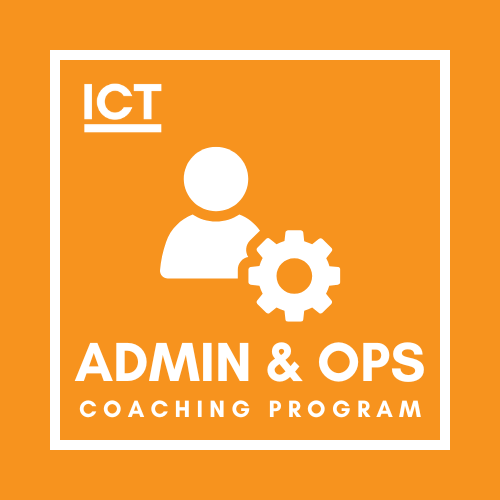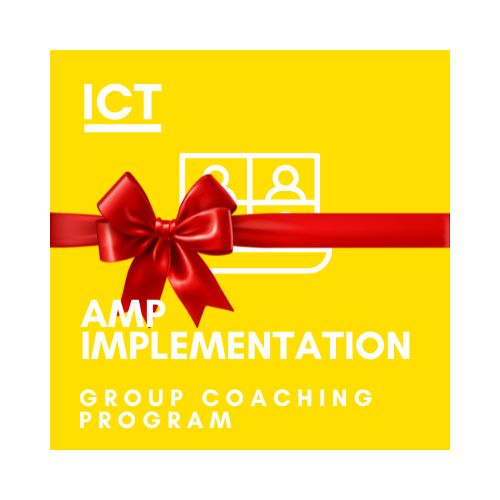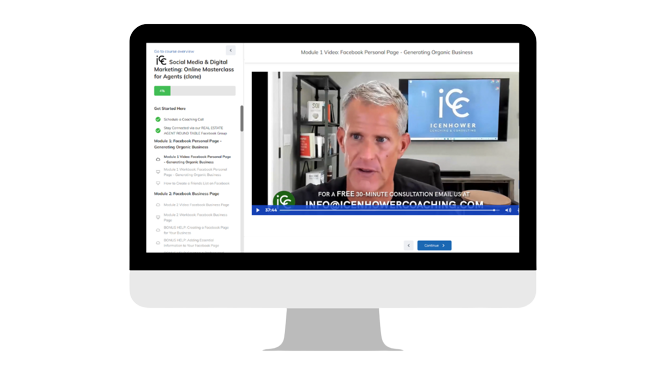Learn how real estate agents and leaders should manage real estate virtual assistants and other remote workers to measure productivity to ensure success.
Do you know how to manage real estate virtual assistants? In the dynamic world of real estate, staying ahead often requires embracing innovative solutions. Virtual assistants have emerged as indispensable assets, streamlining operations and enhancing productivity.
This blog explores the nuances of managing real estate virtual assistants and provides insights into effectively measuring remote worker productivity.
Be sure to listen to this episode of The Brian Icenhower Podcast and subscribe to the podcast so you never miss an episode!
VIDEO: How to Manage Real Estate Virtual Assistants & Measuring Remote Worker Productivity
The Rise of Real Virtual Assistants
In the digital age, real estate professionals are turning to virtual assistants to navigate the demands of a fast-paced industry. This video/podcast delves into the significance of these virtual allies, offering valuable insights into how they can revolutionize your workflow.
Key Takeaways:
- 24/7 Availability: Virtual assistants transcend traditional office hours, providing round-the-clock support to manage administrative tasks, schedule appointments, and handle client inquiries.
- Cost-Effective Solutions: By hiring virtual assistants, real estate professionals can optimize costs, focusing on high-value tasks while delegating routine responsibilities to their virtual counterparts.
- Enhanced Customer Experience: Virtual assistants contribute to a seamless customer experience by ensuring prompt responses, organized data management, and efficient communication.
-
Quick View
Administrative & Operations Coaching Program
$500 / monthThis Administrative & Operations Real Estate Coaching Program is for Administrative Assistants, Transaction Coordinators, Marketing Directors, Listing Managers, Administrative Managers, Operations Directors and any other administrative staff position on a real estate team or brokerage.
6 keys to measuring virtual assistant & remote worker productivity
1. Establish Clear Performance Metrics & Goals
Establish open and transparent communication channels. Utilize project management tools, video conferencing, and messaging platforms to foster seamless interactions.
2. Keep Track of Remote Worker Engagement
How quickly are they getting back to you? How quickly do they attend to the tasks that you present to them? Are they responding and engaging with you regularly?
3. Set Clear Expectations for Remote Communication
Clearly articulate tasks and expectations. Provide detailed instructions to avoid misunderstandings and ensure that your virtual assistant understands the intricacies of the real estate processes.
4. Measure Remote Worker ROI – Return on Investment
It’s essential to understand if the remote worker is worth what you’re paying. If their ROI isn’t making sense, their role doesn’t make sense. Or, you need a new virtual assistant.
5. Develop Remote Worker Trust
Schedule regular check-ins to discuss ongoing projects, address concerns, and provide feedback. This not only keeps you in the loop but also helps build a collaborative working relationship.
6. Follow the “By When” Rule
Every task should have a “by when” attached to it.
By hiring virtual assistants, real estate professionals can optimize costs, focusing on high-value tasks while delegating routine responsibilities to their virtual counterparts.
Brian Icenhower
Measuring remote worker productivity
Ensuring the productivity of your virtual assistant is paramount. The video emphasizes the importance of implementing effective strategies to measure and enhance remote worker productivity.
Key Metrics for Evaluation:
- Task Completion Rates:
Evaluate the efficiency of your virtual assistant by monitoring task completion rates. This metric provides insights into time management and workload capacity. - Communication Responsiveness:
Assess how quickly your virtual assistant responds to messages and emails. Efficient communication is vital in the real estate industry, and responsiveness is a key indicator of productivity. - Quality of Work:
Scrutinize the quality of completed tasks. Ensure that your virtual assistant maintains high standards of work, aligning with your expectations and the demands of the real estate business. - Project Timelines:
Track project timelines and deadlines. Consistently meeting or exceeding deadlines is a clear sign of a productive virtual assistant.
How to manage real estate virtual assistants
Embracing real estate virtual assistants is a strategic move towards efficiency and growth. By implementing effective management strategies and measuring productivity, real estate professionals can harness the full potential of virtual assistants, gaining a competitive edge in the dynamic real estate landscape.
Remember, successful leadership involves clear communication, task delineation, and the utilization of technology. As the real estate industry continues to evolve, virtual assistants stand as valuable allies in navigating the challenges and opportunities that lie ahead.




















